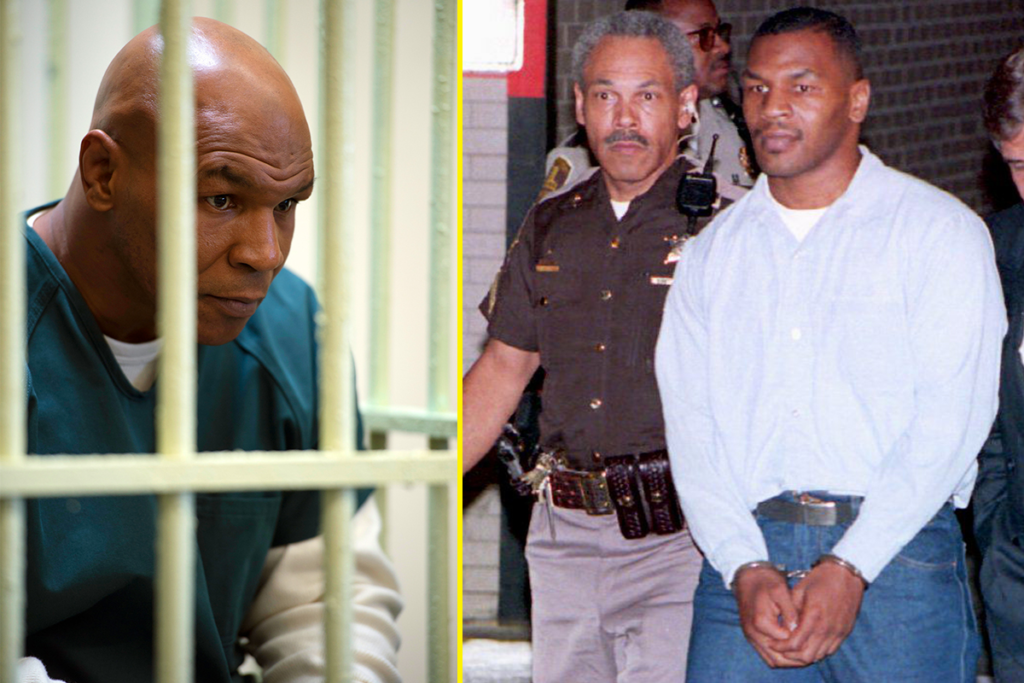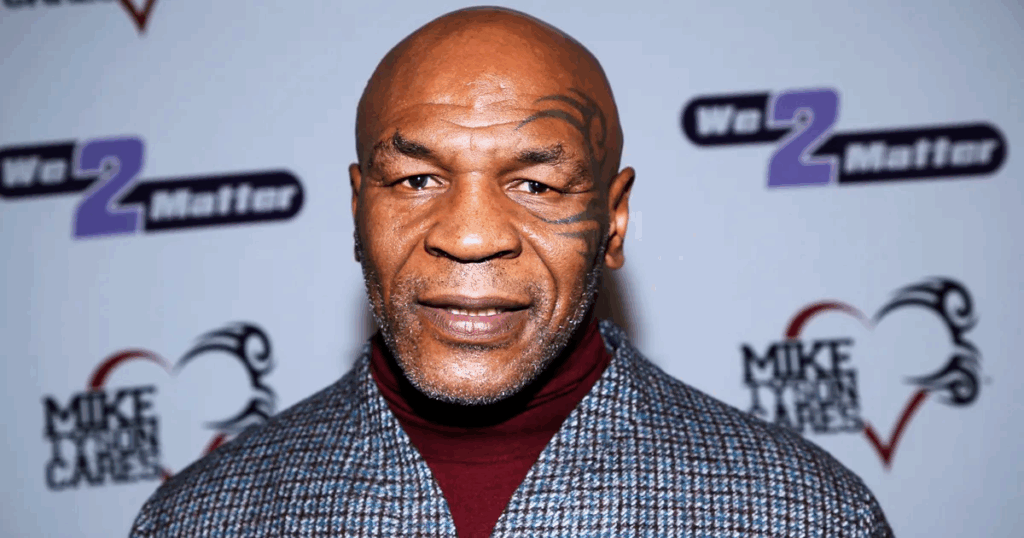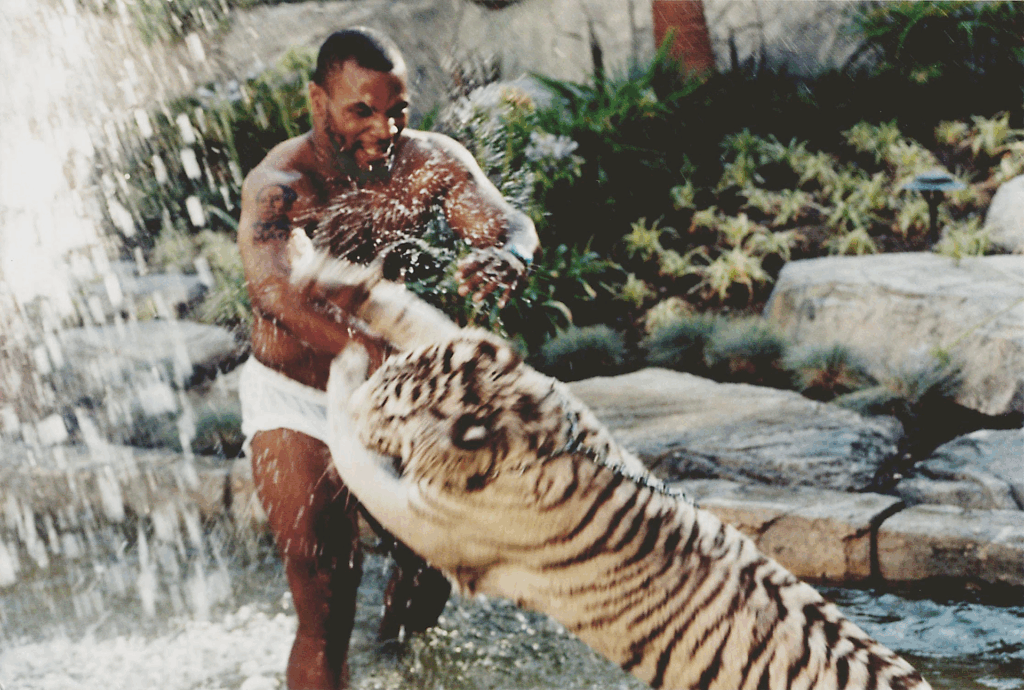
Family and Background
The biography of Mike Tyson starts in one of the toughest environments possible. Brought up in poverty and amid crime, Tyson’s early years laid the foundation for the intensity he would take to the ring. But behind the headlines and knockout reels was a young man in search of structure, belonging and purpose. A native of Brooklyn, his origins in that borough as well as his strong relationships with influential people in his life—particularly his mother and trainer Cus D’Amato—were critical to his growth.
Tyson’s Early Life in Brooklyn, New York
Michael Gerard Tyson was born on June 30, 1966, in Brownsville, a tough neighborhood in Brooklyn, New York. He grew up in a climate of instability, poverty, and violence. His biological father, listed as Purcell Tyson, was largely absent from his life, and his stepfather, Jimmy Kirkpatrick, also left early on. As a result, Tyson was raised primarily by his mother, Lorna Tyson, under very difficult circumstances.
By the age of 10, Tyson had already been involved in numerous street fights. He was frequently bullied, which contributed to his aggressive nature and defensive mindset. His environment pushed him toward petty crime, and by his early teens, he had been arrested multiple times. At 13, he was sent to the Tryon School for Boys, a juvenile detention center in upstate New York—an experience that would change his life forever.
Relationship with His Mother and Mentorship from Cus D’Amato
Tyson’s relationship with his mother, Lorna, was emotionally complex. She struggled to provide for the family and had difficulty managing Tyson’s behavior. Though she loved him, she wasn’t able to offer the stability or discipline he needed. Tragically, she passed away in 1982, when Tyson was just 16 years old—shortly before his boxing career began to take off. Tyson later admitted that her death left a permanent void in his life: “I never really knew my mother. I never saw her happy with me and proud of me for doing something.”
At the Tryon School, Tyson met Bobby Stewart, a juvenile counselor and former boxer who noticed Tyson’s raw physical talent. Stewart introduced him to Cus D’Amato, a legendary boxing trainer known for his work with champions like Floyd Patterson. D’Amato quickly became Tyson’s trainer, mentor, and eventually his legal guardian.
Under Cus’s guidance, Tyson transformed. D’Amato provided not only elite boxing training but also emotional structure and a father figure Tyson had never known. He instilled in Tyson the philosophy of the “peek-a-boo” style, and more importantly, the belief that Tyson could be the heavyweight champion of the world. Cus D’Amato’s mentorship gave Tyson a sense of identity and mission, helping him channel his aggression into something productive and world-changing.
The bond between Tyson and D’Amato became the cornerstone of Tyson’s rise. It was a rare and powerful relationship—one that gave a troubled boy a fighting chance at greatness.
Personal Struggles and Controversies
For all of what played out in the ring, Mike Tyson’s life was just as much about deep personal turmoil and scandal. The rise was meteoric — but so was the fall into public and legal controversy. Tyson’s extracurricular life made headlines as much as his deeds as a boxer did. Strip away his rivalries with the law, the press, and his demons, and you have a man whose complexity is exceeded only by the notoriety of his role as heavyweight champion.
Tyson’s Time in Prison
In 1992, Tyson was convicted of rape following an incident involving Desiree Washington, a contestant in the Miss Black America pageant. He was sentenced to six years in prison, of which he served three years before being released on parole in 1995. The conviction marked a dramatic turning point in Tyson’s life and career.
While incarcerated, Tyson largely withdrew from the public eye but spent time reading religious and philosophical texts. It was during this period that he converted to Islam, adopting the name Malik Abdul Aziz, although he continued to be known professionally as Mike Tyson. He later described prison as both traumatic and clarifying—a place where he was forced to confront the consequences of his actions and the reality of his fame.

Tyson’s time behind bars not only interrupted a thriving boxing career but also deeply affected his personal outlook and mental health. When he returned to boxing, he was still a draw—but many noted that he had changed, both physically and emotionally.
Legal Issues and Media Scandals
The rape conviction was not the only legal or personal controversy in Tyson’s life. Even before that incident, Tyson’s behavior had begun to raise public concern. His marriage to actress Robin Givens in 1988 ended in divorce just a year later, amid allegations of domestic violence. Their tumultuous relationship became national tabloid fodder, especially after a tense television interview in which Givens described life with Tyson as “torture.”

Throughout the 1990s and early 2000s, Tyson was involved in a series of legal troubles, including:
- Assault charges
- Driving under the influence
- Drug possession
- Multiple altercations with reporters, fans, and opponents
One of the most infamous incidents occurred in 1997, during his rematch with Evander Holyfield, when Tyson bit off a portion of Holyfield’s ear, resulting in his disqualification and suspension from boxing. The act shocked the world and further damaged his already fragile public image.
Financially, Tyson was also plagued by mismanagement and excessive spending. Despite earning over $300 million throughout his career, he filed for bankruptcy in 2003, citing debts of over $23 million.
These years were marked by chaos, violence, and public spectacle. Yet, despite the downward spiral, Tyson never entirely disappeared from the spotlight. His notoriety kept him relevant, and eventually, he began a long and difficult road toward redemption. His story remains one of the most extreme—and fascinating—examples of how fame and trauma can collide in the world of sports.
Life After Boxing
After retiring from professional boxing in 2005, Mike Tyson embarked on a different path—a journey toward reinvention, self-discovery, and unexpected success. No longer the intimidating power of the ring, Tyson was on the lookout for projects and public roles that would show the world his transformed self. And gradually he made the transition from a polarizing sportsman to a figure recognized and even adored by the masses, showing that maybe you can go home again — alive and well and contributing.
Tyson’s Work as an Entrepreneur
Tyson went on to shock many by establishing himself as a very successful businessman in the years following his retirement from the sport. One high-profile area he has forayed into is cannabis. In 2016, he founded Tyson Ranch, a firm that grows premium marijuana and advocates for marijuana research, as well as health and wellness. The brand took off and Tyson, who has openly spoken about his own cannabis use for everything from health to mental health to pain relief, quickly became an icon and face of the industry.

Key highlights of his entrepreneurial efforts include:
- Tyson 2.0 – A rebranded line of cannabis products introduced in 2021, expanding his reach into edibles, vapes, and CBD-infused items.
- The Tyson Ranch Resort Project – A concept for a cannabis-themed resort and entertainment complex (still under development).
- Public speaking and appearances – Tyson has participated in business expos and conferences, advocating for cannabis legalization and entrepreneurship.
His ability to connect personal healing with public business ventures has redefined him in the eyes of many—no longer just a boxer, but a thoughtful businessman with a story to tell.
His Media Career and Role in Pop Culture
In addition to his business endeavors, Tyson has built a surprisingly dynamic and successful media career. Initially known for his unpredictable interviews and volatile behavior, he later reinvented himself as a charismatic and self-aware media personality.

Some of his most notable media projects include:
- “The Hangover” (2009 & 2011) – Tyson’s unexpected and hilarious cameo in the hit comedy film helped reintroduce him to a younger audience and showcased his comedic timing.
- “Mike Tyson: Undisputed Truth” – A one-man Broadway show (and later an HBO special) where Tyson shared intimate, painful, and humorous stories from his life, directed by Spike Lee.
- “Mike Tyson Mysteries” (2014–2020) – An animated series on Adult Swim in which Tyson voiced a fictionalized version of himself solving bizarre crimes with a talking pigeon.
- Podcast: “Hotboxin’ with Mike Tyson” – A widely popular podcast where Tyson interviews athletes, entertainers, and thought leaders, often discussing topics like mental health, addiction, personal growth, and spirituality.
Through these appearances, Tyson revealed a more vulnerable, reflective side. His willingness to confront his past mistakes and show growth earned him new respect from audiences who had once only seen the aggressive fighter persona.
Tyson’s media career has become a powerful platform for self-expression, transformation, and healing. By turning his fame into a tool for connection rather than intimidation, Tyson has reshaped his public image—proving that redemption and reinvention are possible even after the most dramatic falls from grace.
Tyson’s Interests Outside of Boxing
The past few years have proven that Mike Tyson is far more than just a man of boxing, business, or media. With age, Tyson has come to orient his life toward meditation, the healing arts and purpose. From defending animal rights to speaking openly about his spiritual quest and psychedelic experiences, Tyson’s own personal transformation reveals a fascinating and fully human side of a man many thought only capable of rage inside the ring.
Interest in Animal Rights and Spirituality
Tyson has long expressed his love and compassion for animals, particularly birds. Even as a child in Brooklyn, he was known to care for pigeons—a passion that continues today. Tyson has credited his pigeons with giving him a sense of peace and emotional grounding. In fact, his very first fight as a child was reportedly sparked by someone hurting one of his birds.
In addition to animal welfare, Tyson has grown increasingly spiritual. He has spoken openly about his evolving belief systems, which combine elements of Islam, meditation, and nontraditional spirituality. Tyson frequently emphasizes the importance of humility, letting go of ego, and seeking balance in life. These themes appear regularly in his podcast interviews and public talks, where he often reflects on his past mistakes with remarkable self-awareness.

Highlights of his spiritual and compassionate lifestyle:
- Lifelong pigeon keeper and animal lover
- Supporter of vegetarian and vegan lifestyles (though not strictly adherent)
- Advocate for emotional intelligence, accountability, and inner peace
- Frequent speaker on personal growth and forgiveness
Tyson’s Work with Psychedelic Therapy
One of the most unexpected and transformative chapters in Tyson’s life has been his advocacy for psychedelic therapy. He has openly discussed his use of substances like psilocybin mushrooms and 5-MeO-DMT (the “toad venom”), crediting them with helping him confront deep emotional wounds, ego issues, and past trauma.
Tyson describes these experiences as nothing short of life-changing. He claims that psychedelics helped him see the world—and himself—more clearly, allowing him to break free from destructive behavioral patterns and find peace after decades of turmoil.

He has since become a vocal supporter of the psychedelic renaissance, which promotes the responsible use of these substances for mental health treatment, particularly for conditions like PTSD, anxiety, and depression.
Tyson’s involvement includes:
- Speaking at psychedelic conferences and retreats
- Sharing his personal transformation stories on global media platforms
- Advocating for the therapeutic potential of psychedelics through interviews and his podcast
By embracing a path of emotional healing and spiritual discovery, Tyson has evolved into an advocate for wellness in the most unexpected of ways. His openness about his vulnerabilities and inner work resonates with people far beyond the sports world. Today, he represents a rare figure in public life—one who has walked through fame, failure, and forgiveness to emerge as something entirely new: a champion of healing, growth, and personal evolution.